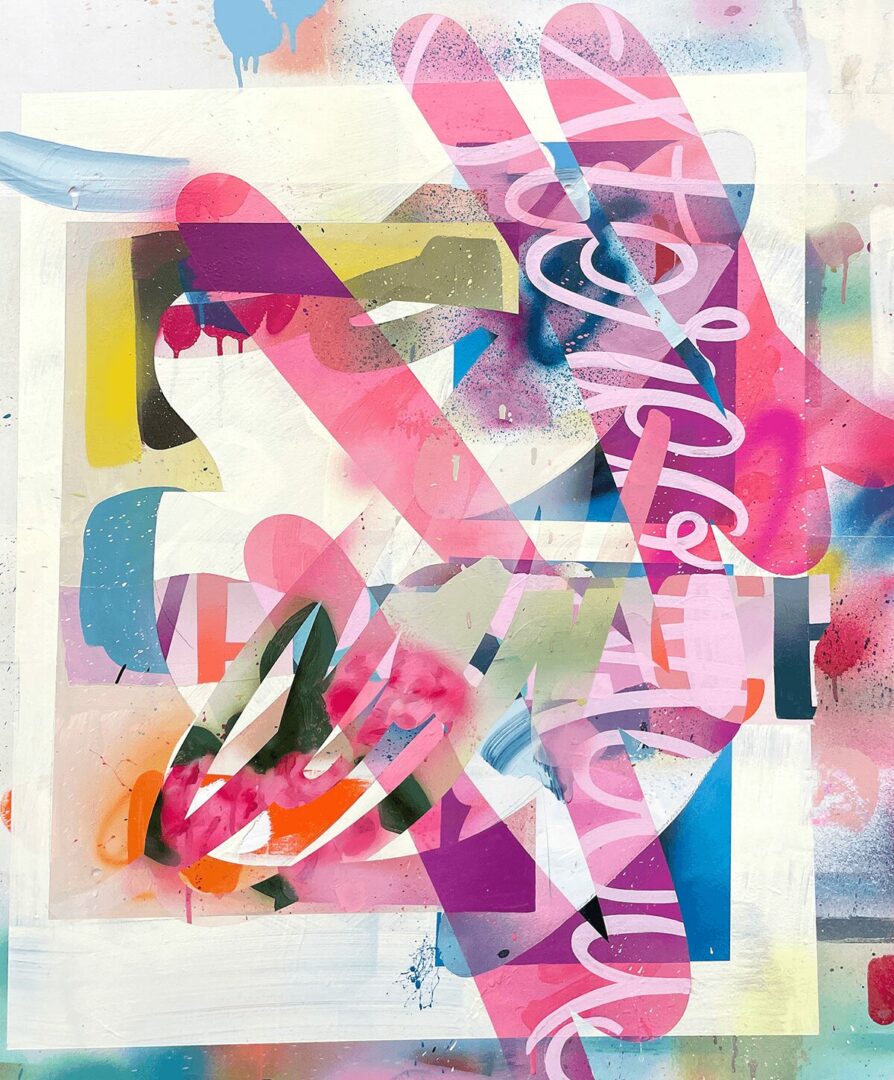Alright – so today we’ve got the honor of introducing you to Brian Kaspr. We think you’ll enjoy our conversation, we’ve shared it below.
Hi Brian, thanks for sharing your insights with our community today. Part of your success, no doubt, is due to your work ethic and so we’d love if you could open up about where you got your work ethic from?
I began working part time in a restaurant at the age of 13. I learned quickly that one of the easiest ways to stand out was to do the work and do it well. I’ve carried this mindset with me ever since.
There was a quote printed on a dot matrix printer hanging in the garage of a family friend that sums this up better than I ever could; “If you don’t have the time to do it right, when will you have the time to do it again”.


Let’s take a small detour – maybe you can share a bit about yourself before we dive back into some of the other questions we had for you?
I am an abstract painter and pattern designer. As a painter I am exploring the use of collage and imagery as a means of mark making and abstraction. I utilize random images and color to create new narratives and relationships, sort of like a poem. I am constantly working on new paintings and murals.
As a pattern designer I design wallpaper and fabric for my company Flat Vernacular. At Flat Vernacular we want our clients to use our materials to help make their home uniquely theirs. We create new designs 2-3 times a year.


If you had to pick three qualities that are most important to develop, which three would you say matter most?
Material and tool expertise, experimentation and play, receive criticism well.
When it comes to creative endeavors, knowing one’s materials and the tools to create is probably the most important skill, second only to ideation. Without knowing how your medium works you can’t properly express those idea in your head. The great thing about this is that all it takes is time and practice. Put in the work and it will come.
The time spent learning materials should also include experimentation and play. Make a mess, see what happens. The happy accidents only occur when accidents are allowed and paid attention to. Learn from them. Go outside of your day to day process and see what comes out the other side.
Criticism is a powerful tool. If someone is critical of your work you are receiving an honest opinion. Even if you find it untrue, take a look at it and decipher what would make someone think or say that thing. Once you;re tuned into this you’ll start to be able to identify the “weak” spots in your work before they even happen.


How can folks who want to work with you connect?
I love collaboration, the real kind not the social media kind. Collaboration allows me to think differently about my work and try new approaches. I would honestly hear anyone out who wants to collaborate or partner with. If I had to call out specific projects I’d say clothing and automotive projects are top of the list. Drop me an email and let’s talk [email protected]
Contact Info:
- Website: https://bkaspr.com
- Instagram: https://instagram.com/bkaspr
- Youtube: https://www.youtube.com/@BKaspr-fh7fi
- Other: Flat Vernacular Wallpaper: flatvernacular.com


so if you or someone you know deserves recognition please let us know here.




